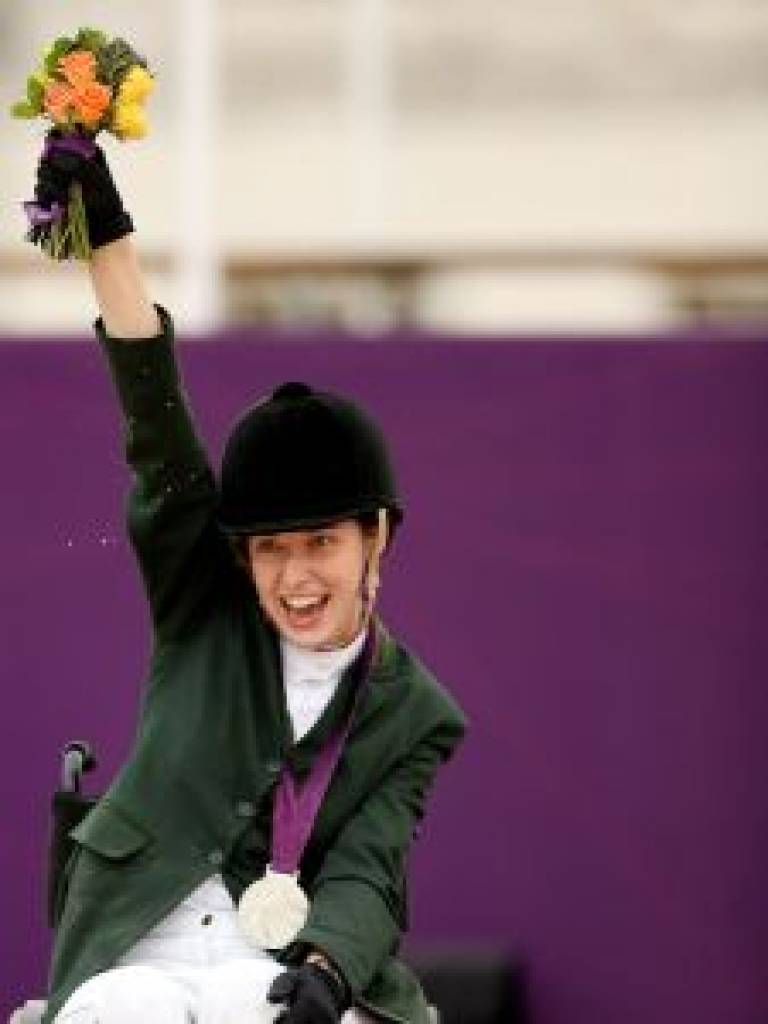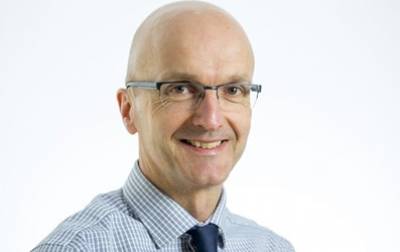Paralympic triumph
25 September 2012
A young Ataxia patient from the National Hospital of Neurology and Neurosurgery (NHNN) and a participant in the Pan-European clinical research register is celebrating her success at the London 2012 Paralympic Games.

Twenty three year old Helen Kearney, who has Friedreich's Ataxia and uses a wheelchair, won one silver and two bronze medals in the riding dressage event.
Helen, who was diagnosed at the age of 10 years, said: "Friedreich's Ataxia is a tough realisation to be left with, one which doesn't get any easier with time. Horse-riding and competing in Para Equestrian sport has given me so much of what this rare disease has taken away."
Helen, who travels from Ireland to one of the few Ataxia specialist centres in the UK at the NHNN, has signed up to a Pan-European clinical research register which records changes in co-ordination and mobility. The research register, funded by the European Commission, is part of the research project "European Friedreich's Ataxia Consortium for Translational Research" (EFACTS) and involves 18 centres in seven European countries.
The clinical data will lead to a better understanding of the condition and its progression and provide essential background knowledge for developing new treatments to test in clinical trials.
Helen says: "Participation in research is vital for me. Just like taking part in the Paralympics, participating in EFACTS at The Ataxia Centre in London makes me feel part of a project. Participating in this team effort helps me to feel active towards my condition."
Consultant neurologist and lead researcher at UCLH/UCL, Dr Paola Giunti said: "At our Ataxia Centre we offer our patients holistic, personalised care which aims to help them achieve as fulfilling a life as possible. We also offer all our patients the opportunity to participate in research projects relevant to their illness."We are very, very proud of Helen and over-the-moon that one of our patients has demonstrated such determination and is such a great example to others. Ataxia is a very rare condition with very distressing symptoms and although research has identified the genetic defect responsible and how it manifests itself as a neurological condition, there is currently no cure. We are pinning our hopes on a research breakthrough to help Helen, and patients like her."
International Ataxia Awareness Day on the 25 September aims to raise awareness of Ataxia, which is a group of more than 100 neurodegenerative disorders caused by brain damage as a result of disease or faulty genes.
People affected by ataxia lose their physical coordination and balance, and often develop tremor, uncontrollable muscle spasms, as well as vision and speech defects. Progressive Ataxia affects an estimated 10,000 adults plus an unknown number of children.
 Close
Close



